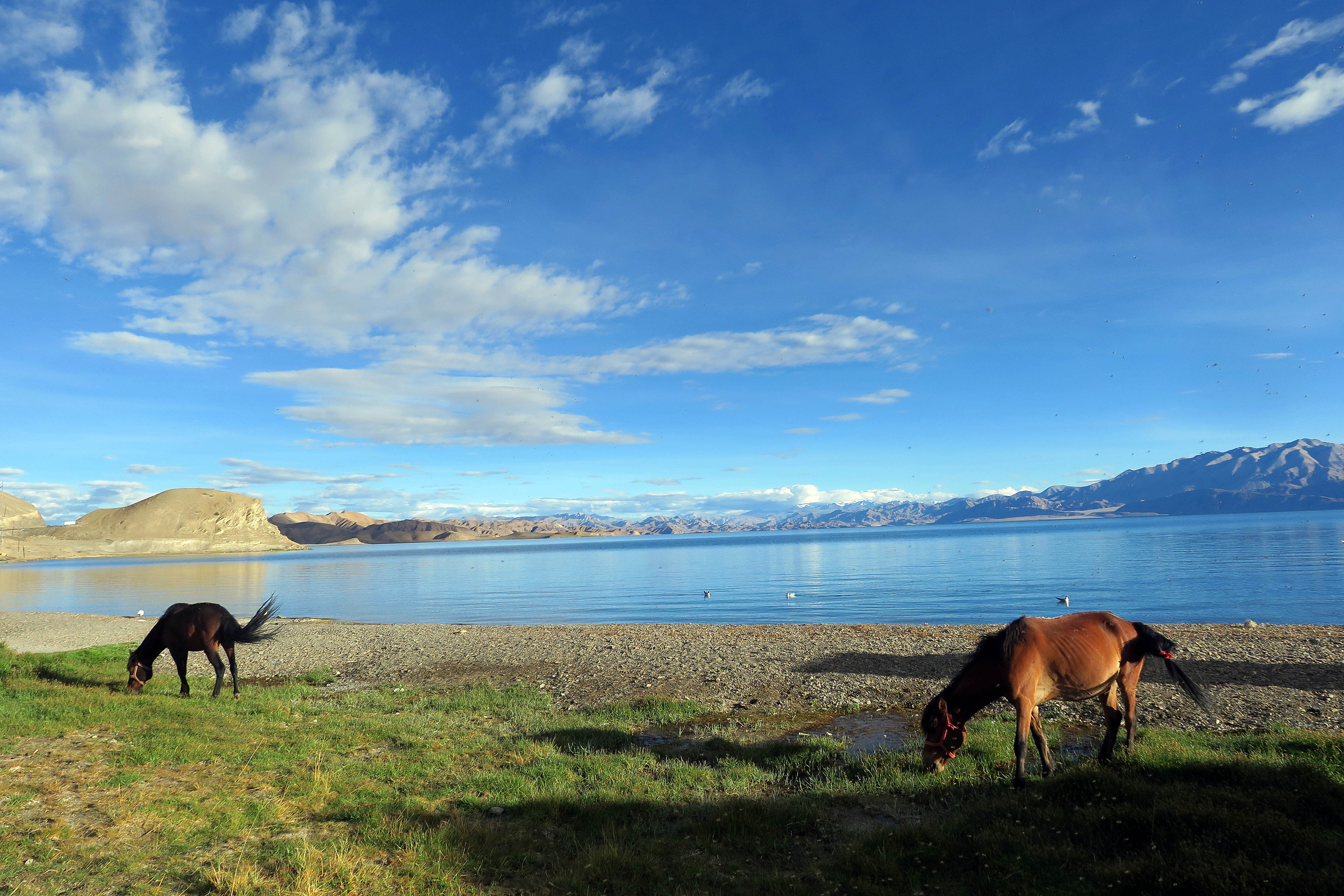China Passes Law Protecting Qinghai-Tibet Plateau

A morning picture of Bangong Lake in the western Qinghai-Tibet Plateau. (PHOTO: VCG)
By ZHONG Jianli
In late April, a landmark law was passed by China's top legislature aimed at protecting the fragile ecosystem of the Qinghai-Tibet Plateau and promoting its sustainable development.
The Law on Ecological Conservation on the Qinghai-Tibet Plateau, which was approved during a standing committee session of the National People's Congress, will take effect on September 1.
Known as "the roof of the world," western China's Qinghai-Tibet Plateau spans around 2.58 million square kilometers and serves as the origin of several major rivers in Asia, including the Yangtze, Yellow, and Lancang-Mekong rivers.
The law outlines several fundamental principles for the protection of the Plateau's fragile ecology. These principles include prioritizing ecological conservation and natural restoration, adopting coordinated and classified policies and implementing scientific measures.
The law requires the protection and restoration of glaciers and frozen soils, rivers, lakes, grasslands, forests and wetlands, as well as the conservation of biodiversity in the region.
Another measure implemented by the law is requiring the research of wild animal and plant species, strengthening protection of important habitats of wild animals, and protecting rare, endangered or endemic wild animal and plant species on the Qinghai-Tibet Plateau.
Scientific investigations and research are encouraged by the law, in an effort to strengthen monitoring of ecological conditions on the plateau. It supports the building of major sci-tech infrastructure to carry out research on climate change, biodiversity, water resources, snow mountain glaciers and frozen soils, as well as desertification prevention and control.
Coordinated efforts will be made to build sci-tech innovation platforms for ecological protection on the Plateau, increase the training of sci-tech professionals, and promote the application of advanced and applicable technologies in the region.
Relevant provisions also state that provincial-level governments on the Plateau must draw red lines for protecting ice caps and glaciers, and broaden the scope of protection for permafrost regions.
In addition, individuals found littering on the plateau could face fines between 500 RMB (about 72 USD) and 10,000 RMB (about 1,448 USD), according to the law.







